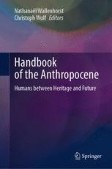Search
Search Results
-
Watsuji Tetsurō’s Memory of Natsume Sōseki: A Translation of “Until I met Sōseki” and “Sōseki’s Character”
The following translation is an extract from the third chapter of Watsuji Tetsurō’s Hidden Japan [埋もれた日本]
1951 . The translation is composed of two... -
“A Consideration of National Character” by Watsuji Tetsurō: a Translation
In this translation, Watsuji Tetsurō sets out to clarify that which is entailed by “national character”. In his analysis of this idea, Watsuji...
-
Professor Koeber Watsuji Tetsurō
In this translation, Watsuji Tetsurō provides an overview of the life and work of Raphael von Koeber who introduced and taught philosophy at Tokyo...
-
Taking Watsuji online: betweenness and expression in online spaces
In this paper, we introduce the Japanese philosopher Tetsurō Watsuji’s phenomenology of aidagara (“betweenness”) and use his analysis in the...
-
Fudo: a Buddhist Response to the Anthropocene
For many environmental philosophers, the dualisms intrinsic to Modernity that separate body from mind and nature from culture must be deconstructed...
-
The Early Reception of Nietzsche’s Eternal Recurrence in Japan and Its Emotional Features
This chapter examines some representative cases of Japanese intellectuals’ discussions of Friedrich Nietzsche’s idea of eternal recurrence from the...
-
Dōgen’s Texts Expounded by the Kyoto School – Religious Commentary or Philosophical Interpretation?
This chapter focuses on modern commentators close to or from the Kyoto school. According to Müller, there have been two approaches within the...
-
Japanese “Mono-no-aware” and Western Philosophy
A melancholy feeling within traditional Japanese literary arts is described by the word “mono-no-aware もののあはれ.” Motoori Norinaga 本居宣長 (1730–1801) in...
-
Emotional AI, Ethics, and Japanese Spice: Contributing Community, Wholeness, Sincerity, and Heart
This paper assesses leading Japanese philosophical thought since the onset of Japan’s modernity: namely, from the Meiji Restoration (1868) onwards....
-
A Critical Recuperation of Watsuji’s Rinrigaku
Watsuji is recognised as one Japan’s foremost philosophers. His work on ethics, Rinrigaku, is cosmopolitan in engaging the Western philosophical...
-
A Moral Ground for Technology: Heidegger, Postphenomenology, and Watsuji
In the face of growing pessimism over the effects of new technologies on social cohesion, recent trends in ethics show a more positive approach to...
-
Silence as a Cognitive Tool to Comprehend the Environment
This article presents silence as a cognitive tool to comprehend the environment. Two dimensions of silence are addressed: a natural mechanism and...

-
Retrieving the Affective Aspect of Human Being: a Hermeneutical Phenomenological Analysis of 存 Cun/Son’s Historical Origin, its Controversial Role in the East Asian Translation of Being/Existence, and Potential Ontological Implications
It is conventionally accepted that while Western philosophy has “being” as a central topic, Eastern thoughts focused only on “nothing”. I will...
-
Going Out to Sea: Dōgen’s Ongoing Emphasis on the Creative Ambiguity of Horizons
The aim of this chapter is to explore and examine what hermeneutic methods can and should be summoned in order to interpret critically an intriguing...
-
Disasters
When the question of a prospective anthropology of disasters (PCA) arises, two fields of use should be first distinguished. On the one hand, a...
-
Ethics Can Only Be Hermeneutic and Not Phenomenological: A Critical Assessment of Watsuji Tetsurō’s Thesis
Watsuji Tetsurō’s ethics as a study of human relationships or of persons as between-ness (aidagara) is often conceived as a critical, but fruitful,...
-
Philosopher, Religious Thinker or Contemplative Practitioner? Making Sense of Dōgen Beyond Zen Modernism
Van der Braak reflects on the different approaches to understanding Dōgen’s work. For his own, he uses the philosophical hermeneutics of the German...
-
Nicht-westliche Gemeinwohlkonzeptionen
Nicht-westliche Gemeinwohlkonzeptionen sind so vielfältig und heterogen, dass sie sich keinesfalls auf einen gemeinsamen Nenner bringen lassen. In...
-
Un-Trennbarkeit von Religion und interkultureller Philosophie? Der japanische Denkweg als ein „Inter“ der Erkenntnis
Religion und Philosophie sind in West-Europa bzw. den USA in einer ambivalenten Umarmung verschränkt, gefallen sie sich doch als verschiedenen...
